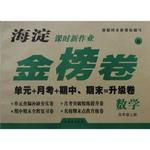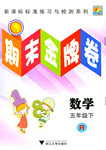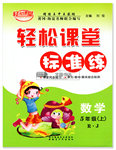
BEIJING, Nov. 26—U.S. dollar hit another record low against the euro on Friday, with the European currency climbing above $1.32 for the first time. The green-back fell to its lowest in nearly five years against the yen the same day.
By 1943 EST, the dollar was trading at US$1.3265 per euro, compared with US$1.3270 in thin late New York trade. It was at 102.55 yen, little changed from New York after touching 102.37, a level not seen since March 2000, in London.
Japanese Finance Minister Sadakazu Tanigaki repeated his warning against dollar weakness, threatening to take action against sudden moves, but market participants said such verbal intervention (口头干涉) had long lost its clout.
Traders were expecting market liquidity to remain thin on Friday because of the extended U.S. holiday.
In such thin trading, many said a fall in the dollar past 102 yen and US$1.33 per euro was a real possibility.
Referring to recent currency movements as “brutal”, European Central Bank chief Jean-Claude Trichet, who is the most vocal European policymaker on dollar weakness, is due to make comments in Rio de Janeiro, along with ECB council member and Spanish central bank governor Jaime Caruana.
Introduced in 1999 as the common currency for 12 European countries, the euro initially(最初) dropped against the dollar but has risen some 60 percent since hitting an all-time low of 82 U.S. cents in October 2000.
64. What does “the green-back” refer to in the first paragraph?
A. U.S. dollar B. Another record
C. The euro D. European currency
65. How did Sadakazu Tanigaki feel about dollar weakness?
A. Excited B. Puzzled C. worried D. Disappointed
66. The underlined word “brutal” probably means ______.
A. cruelty B. help C. criticism D. apology
67. According to some people, it was possible for the dollar to trade ______.
A. at 1.3265 per euro B. at 1.32 per euro
C. at 1.3270 per euro D. at 1.331 per euro
 海淀课时新作业金榜卷系列答案
海淀课时新作业金榜卷系列答案 期末金牌卷系列答案
期末金牌卷系列答案 轻松课堂标准练系列答案
轻松课堂标准练系列答案科目:高中英语 来源: 题型:056
书面表达
据报道,2008年北京奥运会将选拔约10万名志愿者为之服务。请你以“Dos and Don'ts for the 2008 Olympic Volunteers”为题,用英语写一篇短文,讨论志愿者应该做什么,不应该做什么。短文应包括下表中的内容:

注意:1.对所给要点,不要简单翻译,要有适当发挥。
2.词数120左右,短文中已写好的部分,不计入总词数。
参考词汇:形象n.image。
Dos and Don'ts for the 2008 Olympic Volunteers
It is reported that about 100 000 people will be chosen as
volunteers for the 2008 Olympic Games in Beijing. What should
the volunteers do and what should they not do?
____________________________________________________________
_____________________________________________________________
______________________________________________________________
If I have the honour to be chosen as a volun teer, _______
______________________________________________________________
______________________________________________________________
查看答案和解析>>
科目:高中英语 来源: 题型:阅读理解
President Clinton’s decision on Apr.8 to send Chinese Premier Zhu Rongji packing without an agreement on China’s entry into the World Trade Organization seemed to be a massive miscalculation. The President took a drubbing from much of the press, which had breathlessly reported that a deal was in the bag. The Cabinet and Whit House still appeared divided, and business leaders were characterized as furious over the lost opportunity. Zhu charged that Clinton lacked “the courage” to reach an accord. And when Clinton later telephoned the angry Zhu to pledge a renewed effort at negotiations, the gesture was widely portrayed as a flip-flop.
In fact, Clinton made the right decision in holding out for a better WTO deal. A lot more horse trading is needed before a final agreement can be reached. And without the Administration’s goal of a “bullet-proof agreement” that business lobbyists can enthusiastically sell to a Republican Congress, the whole process will end up in partisan acrimony that could harm relations with China for years.
THE HARD PART. Many business lobbyists, while disappointed that the deal was not closed, agree that better terms can still be had. And Treasury Secretary Robert E. Rubin, National Economic Council Director Gene B. Sperling, Commerce Secretary William M. Daley, and top trade negotiator Charlene Barshefsky all advised Clinton that while the Chinese had made a remarkable number of concessions, “we’re not there yet,” according to senior officials.
Negotiating with Zhu over the remaining issues may be the easy part. Although Clinton can signal U.S. approval for China’s entry into the WTO himself, he needs Congress to grant Beijing permanent most-favored-nation status as part of a broad trade accord. And the temptation for meddling on Capital Hill may prove over-whelming. Zhu had barely landed before Senate Majority Leader Trent Lott (R-Miss) declared himself skeptical that China deserved entry into the WTO. And Senators Jesse A. Helms (R-N.C.) and Emest F. Hollings (D-S. C.) promised to introduce a bill requiring congressional approval of any deal.
The hidden message from these three textile-state Southerners: Get more protection for the U. S. clothing industry. Hoping to smooth the way, the Administration tried, but failed, to budge Zhu on textiles. Also left in the lurch: Wall Street, Hollywood, and Detroit. Zhu refused to open up much of the lucrative Chinese securities market and insisted on “cultural” restrictions on American movies and music. He also blocked efforts to allow U. S. auto makers to provide fleet financing.
BIG JOB. Already, business lobbyists are blanketing Capitol Hill to presale any eventual agreement, but what they’ve heard so far isn’t encouraging. Republicans, including Lott, say that “the time just isn’t right” for the deal. Translation: We’re determined to make it look as if Clinton has capitulated to the Chinese and is ignoring human, religious, and labor rights violations; the theft of nuclear-weapons technology; and the sale of missile parts to America’s enemies. Beijing’s fierce critics within the Democratic Party, such as Senator Paul D. Wellstone of Minnesota and House Minority leader Richard A. Gephardt of Missouri, won’t help, either.
Just how tough the lobbying job on Capitol Hill will be become clear on Apr. 20, when Rubin lectured 19chief executives on the need to discipline their Republican allies. With business and the White House still trading charges over who is responsible for the defeat of fast-track trade negotiating legislation in 1997, working together won’t be easy. And Republicans—with a wink—say that they’ll eventually embrace China’s entry into the WTO as a favor to Corporate America. Though not long before they torture Clinton. But Zhu is out on a limb, and if Congress overdoes the criticism, he may be forced by domestic critics to renege. Business must make this much dear to both its GOP allies and the Whit House: This historic deal is too important to risk losing to any more partisan squabbling
1. The main idea of this passage is
[A]. The Contradiction between the Democratic Party and the Republican Party.
[B]. On China’s entry into WTO.
[C]. Clinton was right.
[D]. Business Lobbyists Control Capitol Hill.
2. What does the sentence “Also left in the lurch: Wall Street, Hollywood, Detroit” convey?
[A]. Premier Zhu rejected their requirements.
[B]. The three places overdid criticism.
[C]. They wanted more protection.
[D]. They are in trouble.
3. What was the attitude of the Republican Party toward China’s entry into the WTO?
[A]. Contradictory. [B].Appreciative.
[C]. Disapproving. [D]. Detestful.
4. Who plays the leading part in the deal in America?
[A]. White House . [B]. Republicans.
[C]. The Democratic Party. [D]. Businessmen.
5. It can be inferred from the passage that
[A]. America will make concessions.
[B]. America will hold out for a better WTO
[C]. Clinton has the right to signal U. S. approval for China’s entry.
[D]. Democratic party approve China’s entry into the WTO.
查看答案和解析>>
科目:高中英语 来源:2011-2012学年浙江省高三上学期期中考试英语题 题型:完型填空
"Every time we had dinner, I felt awkward when my Chinese mom__21___asked me to eat more. My mom in American would__22___push me like that.__23___I couldn't tolerate it any more, so I asked why she did that. She told me it was because she loved me and really looked__24___me as her own child and she worried about whether I felt hungry. From that point I understood that Chinese people had__25___a poor life in the past.__26___worries parents most is whether their children have enough food. Although their lives have dramatically improved, they are used to__27___the old concerns. I still don't feel easy with constant___28__to eat, but when my Chinese mom tries to persuade me__29___more, I always thank her with a smile__30___feeling angry."
This story comes from Tyler, an American youngster who once lived in my neighbour’s home. His Chinese mom is Wang Huirong, a__31___from Beijing Normal University.
As economic__32___between the US and China become more frequent, an increasing number of American teenagers have become interested in Chinese culture, which seems very new and__33___ to them. Chinese has gradually become a(n) __34___choice for American high school students studying a second language. Tyler's father has a trade relationship with China stretching back to the beginning of reform and opening-up, which gave Tyler the opportunity to have__35___to China from a very young age.
"Only__36___and opening-up has allowed us to have a lovely American teenager come and visit us frequently. I couldn't even imagine that in the past. Before we actively sought to avoid __37___relations. None of us could ever have imagined that one day we would live with foreigners __38___we were from the same family." says Wang with deep feeling.
Tyler's Chinese has improved a lot. When he first arrived at Wang's home he often watched the retiree__39___ she spoke, but couldn't respond. Wang often felt anxious and asked for my help with translating. But now Tyler has no problem__40___with us in Chinese.
1.A. eagerly B. repeatedly C. friendly D. warmly
2.A. also B. never C. often D. not
3.A. However B. But C. Finally D. Therefore
4.A. after B. at C. for D. upon
5.A. led B. leaded C. live D. made
6.A. It B. What C. That D. Which
7.A. speaking B. talking C. voicing D. saying
8.A. demands B. orders C. requests D. commands
9.A. eat B. eating C. to eat D. ate
10.A. other than B. but than C. instead D. instead of
11.A. retiree B. worker C. professor D. official
12.A. changes B. exchanges C. conflicts D. improvements
13.A. different B. difficult C. challenging D. exciting
14.A. hot B. heat C. cold D. only
15.A. entrance B. access C. door D. way
16.A. revolution B. fighting C. reform D. motivation
17.A. foreigner B. aboard C. civil D. overseas
18.A. like B. as if C. as D. even if
19.A. as B. while C. since D. for
20.A. chat B. chatting C. to chat D. chatted
查看答案和解析>>
科目:高中英语 来源:2010年吉林一中高二上学期期中考试英语卷 题型:阅读理解
After a 15-year ban on the sale of fireworks in Beijing, Kang Guoliang, 51, was able to start his old trade again yesterday.
As a salesman in Xinhui store in Dongcheng District, he is happy about the increasing number of buying fireworks wrapped in red paper — a color standing for happiness and good luck.
“Fireworks are available for the first time in town for more than a decade,” Kang said happily.“People will buy them.”
The store has 300 boxes of fireworks piled up and is open 24 hours at the moment.Residents are buying the fireworks and firecrackers for the upcoming Spring Festival, which falls on February 18.
Citywide, 2,116 registered stores and retailers, 585 in the centre and 1,600 on the outskirts are trading fireworks in the Chinese capital.Sales of fireworks within the Fifth Ring Road started yesterday and will last until March 4, Xinhua reported.Among the stores, 117 stores are permitted to operate 24 hours.About 600,000 boxes of firecrackers worth more than 100 million yuan have been carried to registered stores.
The Chinese capital began a ban in 1993 to reduce fireworks-related deaths and fires during the holiday season.Last September the ban was removed in response to residents’ fondness for fireworks when celebrating Spring Festival.
According to new rules, Beijing residents are allowed to set off fireworks within the Fifth Ring Road all day on Lunar New Year’s Eve and Lunar New Year’s day, from 7 a.m.to midnight every day from February 19 to March 4.
“Spring Festival without fireworks is not Spring Festival,” said Sheng Hefei, who was buying fireworks in the store.“It was fun to light the firecrackers when I was little,” he said.“The sound and view of fireworks make a real holiday.” However, not all residents welcome the return of firecrackers because of injuries, pollution and noise.“My child is scared of the sudden sound of firecrackers, and it is annoying to hear it all night long,” complained Lu Jun, a local resident.
(China Daily02/11/2008)
1.The passage is likely to belong to a(n)__________?
|
A.description |
B.argument |
C.advertisement |
D.news report |
2.What’s the main idea of the passage?
|
A.Beijing fireworks sales start after a 15-year ban. |
|
B.People go to buy fireworks and firecrackers every where in Beijing. |
|
C.Beijing residents all welcome the return of firecrackers. |
|
D.Many stores began to sell fireworks and firecrackers. |
3.We can learn from the passage that ____________.
|
A.every Spring Festival falls on February 18 |
|
B.Beijing residents can set off fireworks everywhere . |
|
C.fireworks are allowed to be sold because people like them. |
|
D.from February 19 to March 4, Beijing residents can set off fireworks twenty four hours every day. |
4.What is the writer’s attitude towards the sales of fireworks in Beijing?
|
A.Negative |
B.Not mentioned |
C.Positive |
D.Satisfactory |
查看答案和解析>>
科目:高中英语 来源:0910年浙江省高二第一学期期中考试 题型:单词拼写
第II 卷
第三部分:写作(共四节,满分40分)
第一节:单词拼写(共10小题,每小题1分,满分10分)
86. Li Bai is a great p______. He wrote a lot of poems.
87. Having engaged for 3 years, they decided to get m_______ this year.
88. The n________ temperature of a human being is about 37℃.
89. Many shops were completely d__________ in the big fire.
90. Regular exercise is good for your h________.
91. The teacher gave us some a________ on how to learn English well.
92. Could you lend me one of your d__________? I want to look up some new words.
93. We u_________ get up at half past six and go to school at about seven o’clock.
94. It’s d_________ to drive fast without safety belts.
95. Chinese athletes won altogether 100 m______ in the 2008 Olympics in Beijing.
查看答案和解析>>
湖北省互联网违法和不良信息举报平台 | 网上有害信息举报专区 | 电信诈骗举报专区 | 涉历史虚无主义有害信息举报专区 | 涉企侵权举报专区
违法和不良信息举报电话:027-86699610 举报邮箱:58377363@163.com